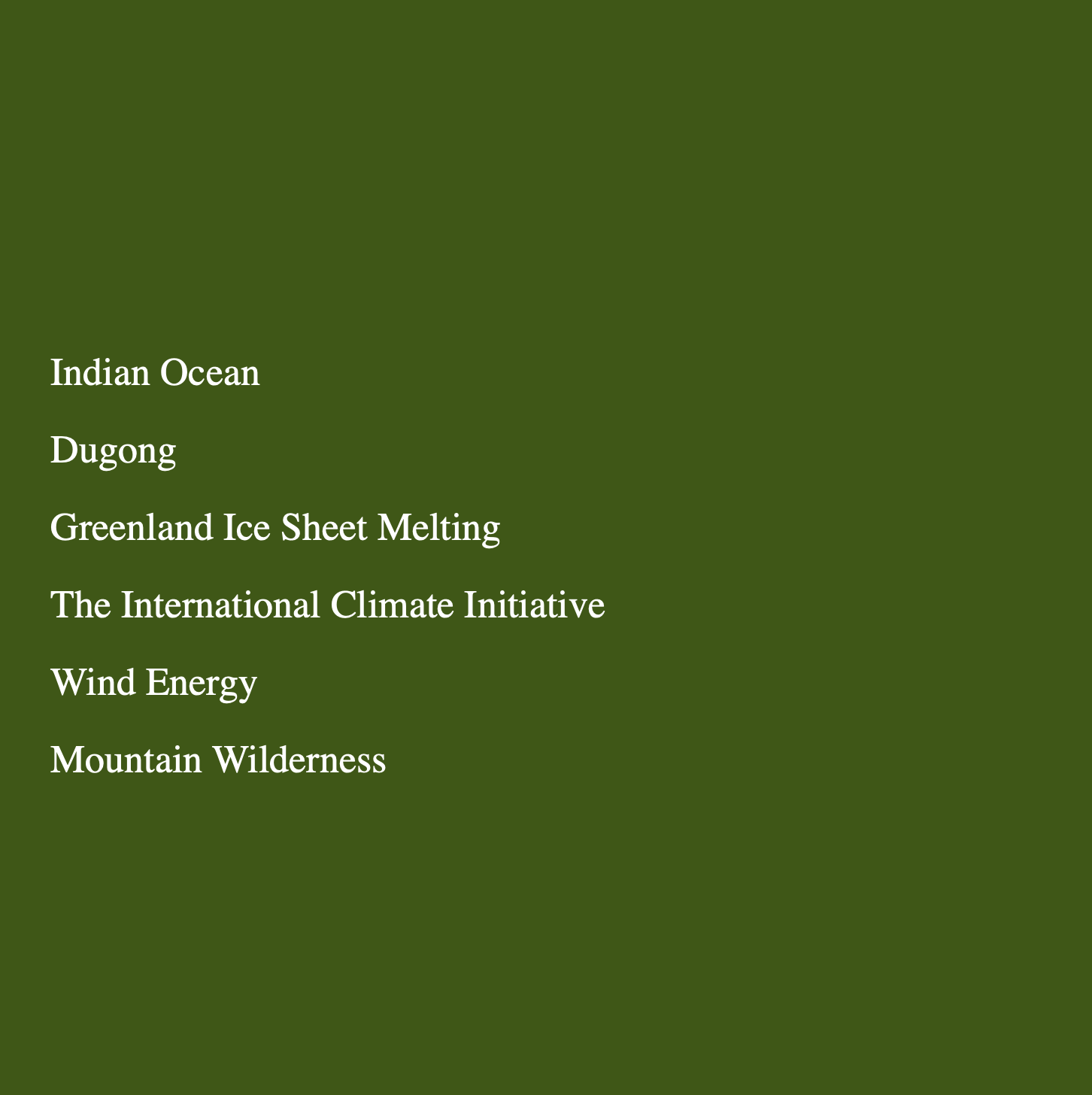Title: "Vital Blue to Cold White: Protecting the Indian Ocean, Dugongs, and the Greenland Ice Sheet through International Collaboration and Sustainable Energy Solutions"
Our Earth, a harmonious blend of diverse ecosystems, ranges from the expansive Indian Ocean to the icy expanse of the Greenland Ice Sheet. Yet, these ecosystems are increasingly threatened by climate change, as evident in the plight of the Dugong and the alarming pace of ice melt. Initiatives such as The International Climate Initiative, coupled with the rise of sustainable energy sources like wind energy and organizations like Mountain Wilderness, embody humanity's potential to address these challenges.
The Indian Ocean, the world's third-largest ocean, teems with life, supporting myriad species and human livelihoods. But rising water temperatures and pollution levels pose grave threats. A poignant example is the plight of the Dugong, a marine mammal whose seagrass habitats are being destroyed due to coastal development and water pollution.
In stark contrast to the tropical Indian Ocean is the frigid Greenland Ice Sheet. Covering roughly 80% of Greenland's surface, it is the second-largest body of ice in the world. Worryingly, the pace of its melting has increased, driven by global warming. This not only contributes to rising sea levels, threatening coastal habitats and cities, but also accelerates global warming by reducing the Earth's reflectivity.
The International Climate Initiative (IKI) by the German Federal Ministry for the Environment, Nature Conservation, and Nuclear Safety provides a beacon of hope in these challenging times. The IKI supports projects in various countries on climate protection, adaptation to climate change, conserving biodiversity, and improving ecosystems – all crucial steps in mitigating environmental damage and climate change.
Parallelly, the adoption of sustainable energy is key in the fight against climate change. Wind energy stands out as a promising alternative. Unlike fossil fuels, wind energy is renewable, abundant, and significantly reduces greenhouse gas emissions. Further, advancements in technology are making it increasingly cost-effective, supporting its mainstream adoption.
Another advocate for preservation in this narrative is Mountain Wilderness, an international non-profit dedicated to the protection of mountainous regions worldwide. The organization’s work emphasizes maintaining the natural beauty and biodiversity of these regions, underscoring the importance of preserving all forms of ecosystems – from oceans and ice sheets to mountains.
In this narrative, each facet – the Indian Ocean's vitality, the struggle of the Dugong, the alarming melting of the Greenland Ice Sheet, the proactive measures of the International Climate Initiative, the potential of wind energy, and the advocacy of Mountain Wilderness – contributes to the broader story of our planet's ecological crisis and the potential solutions.
In conclusion, from the warm, vibrant Indian Ocean to the chilling reality of the Greenland Ice Sheet melt, we are witnessing the stark impacts of climate change. However, initiatives like the International Climate Initiative, the rise of sustainable energy like wind power, and conservation organizations like Mountain Wilderness offer hope. They show that with concerted efforts, we can address these challenges, protect endangered species like the Dugong, and conserve our precious ecosystems for future generations.
